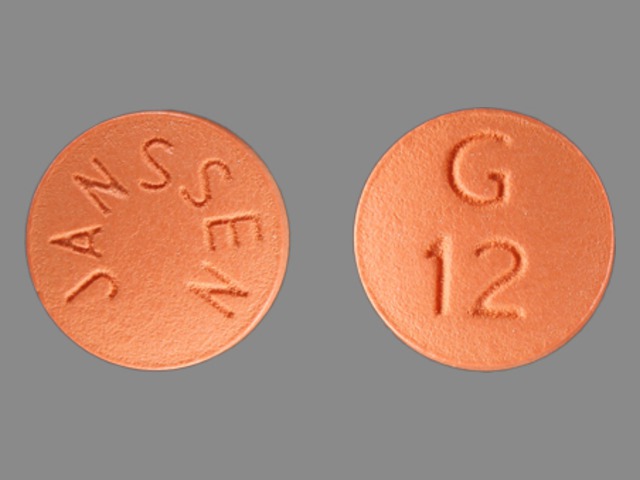Haloperidol is a medication used for treating people with psychosis that can be taken by mouth or injected. As well as being an antipsychotic (preventing psychosis), it also calms people down or helps them to sleep.
Similarly, What symptoms does haloperidol treat?
Haloperidol is used to treat certain mental/mood disorders (such as schizophrenia, schizoaffective disorders). This medicine helps you to think more clearly, feel less nervous, and take part in everyday life. It can also help prevent suicide in people who are likely to harm themselves.
Can haloperidol cause death? Haloperidol is a typical antipsychotic drug. This drug is still widely used in emergency medicine, psychiatry, and general medicine departments. It is mostly used for acute confusional state, psychotic disorders, agitation, delirium, and aggressive behaviour. Overdose of haloperidol can cause sudden deaths.
Thereof, What are the main side effects of haloperidol?
Haloperidol may cause side effects. Tell your doctor if any of these symptoms are severe or do not go away:
- dry mouth.
- increased saliva.
- blurred vision.
- loss of appetite.
- constipation.
- diarrhea.
- heartburn.
- nausea.
How does haloperidol make you feel?
This medicine may cause some people to become dizzy, drowsy, or may cause trouble with thinking or controlling body movements, which may lead to falls, fractures or other injuries. Even if you take haloperidol at bedtime, you may feel drowsy or less alert on arising.
How long should you take haloperidol?
The long-acting injection form of haloperidol is administered every 3 to 4 weeks.
What does haloperidol do to the brain?
Haloperidol is a medication that works in the brain to treat schizophrenia. It is also known as a first generation antipsychotic (FGA) or typical antipsychotic. Haloperidol rebalances dopamine to improve thinking, mood, and behavior.
Does Haldol cause brain damage?
Haloperidol Medication can cause Severe or Fatal Reactions – Brain Injury Association of America.
How quickly does haloperidol work?
Haloperidol typically works within 30 to 60 minutes. A long-acting formulation may be used as an injection every four weeks in people with schizophrenia or related illnesses, who either forget or refuse to take the medication by mouth.
Is haloperidol a narcotic?
f we reported our clinical observation of the apparent usefulness of haloperidol as a non-narcotic analgesic for the alleviation of cancer pain.
How long does haloperidol stay in your system?
Abstract. In normal subjects after a single oral dose, haloperidol half-life has been reported to range 14.5-36.7 hours (or up to 1.5 days). After chronic administration, half-lives of up to 21 days have been reported.
Is haloperidol used for anxiety?
In the parameters tested in this study, haloperidol has been shown to be more effective than diazepam in the treatment of anxiety neuroses and appears to provide significantly better overall symptomatic relief and to be more acceptable to patients than diazepam.
What happens if you stop taking haloperidol?
In psychotic patients, abrupt discontinuation of haloperidol results in nausea, vomiting and sweating, as well as a « relapse into psychosis » characterized by anxiety, depression and internal chaos (1). Interestingly, the authors caution that the so-called relapse into psychosis may simply be a sign of withdrawal.
What is haloperidol used for in elderly?
Descriptions. Haloperidol is used to treat nervous, emotional, and mental conditions (eg, schizophrenia). It is also used to control the symptoms of Tourette’s disorder. This medicine should not be used to treat behavior problems in older adult patients who have dementia.
Who should not take haloperidol?
You should not use haloperidol if you are allergic to it, or if you have: Parkinson’s disease; or. certain conditions that affect your central nervous system (such as severe drowsiness, or slowed thinking caused by taking other medicines or drinking alcohol).
When is the best time of day to take haloperidol?
You can take haloperidol before or after your meals. Swallow the dose with a drink of water. Try to take your doses at the same time of day each day, as this will help you to remember to take them. If you forget to take a dose, take it as soon as you remember.
What happens when you stop taking haloperidol?
In psychotic patients, abrupt discontinuation of haloperidol results in nausea, vomiting and sweating, as well as a « relapse into psychosis » characterized by anxiety, depression and internal chaos (1). Interestingly, the authors caution that the so-called relapse into psychosis may simply be a sign of withdrawal.
Is haloperidol good for anxiety?
In the parameters tested in this study, haloperidol has been shown to be more effective than diazepam in the treatment of anxiety neuroses and appears to provide significantly better overall symptomatic relief and to be more acceptable to patients than diazepam.
Does your brain go back to normal after antidepressants?
The process of healing the brain takes quite a bit longer than recovery from the acute symptoms. In fact, our best estimates are that it takes 6 to 9 months after you are no longer symptomatically depressed for your brain to entirely recover cognitive function and resilience.
Does your brain go back to normal after antipsychotics?
For neurological, neuropsychological, neurophysiological, and metabolic abnormalities of cerebral function, in fact, there is evidence suggesting that antipsychotic medications decrease the abnormalities and return the brain to more normal function.
Can you take Haldol every day?
Adults and children 13 years of age and older—At first, 0.5 to 5 milligrams (mg) 2 or 3 times a day. Your doctor may increase your dose if needed. However, the dose is usually not more than 100 mg per day.
Join TheMoney.co community and don’t forget to share this post !





